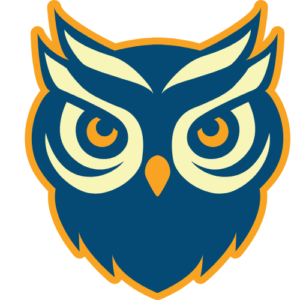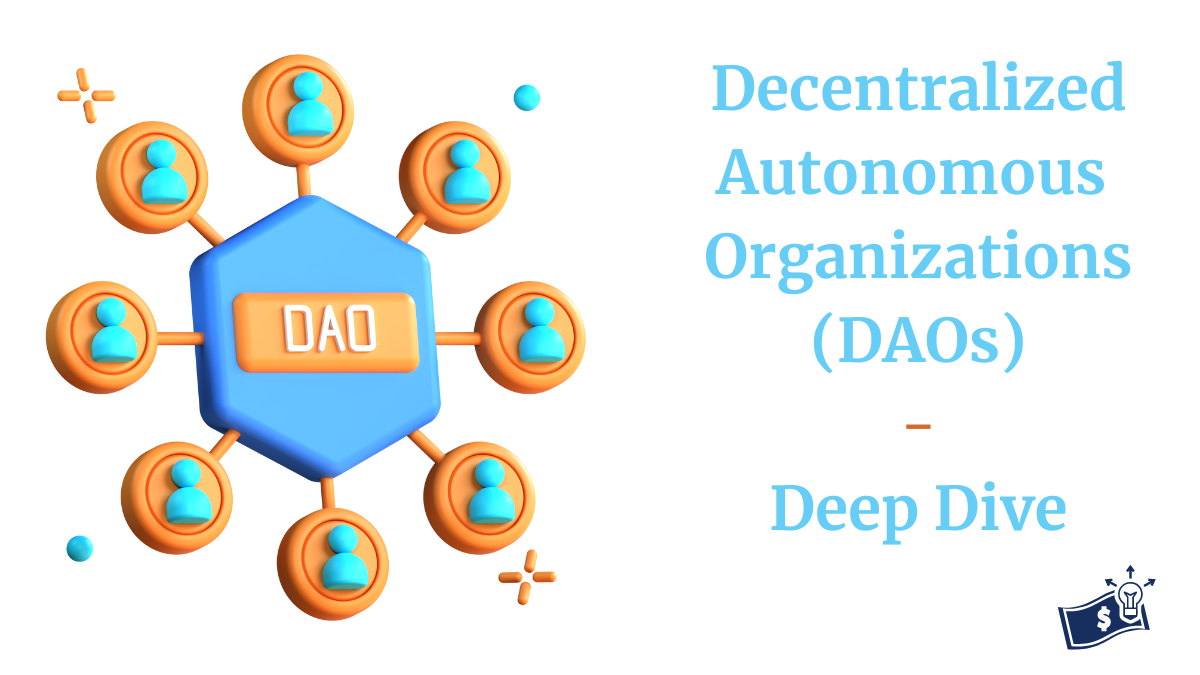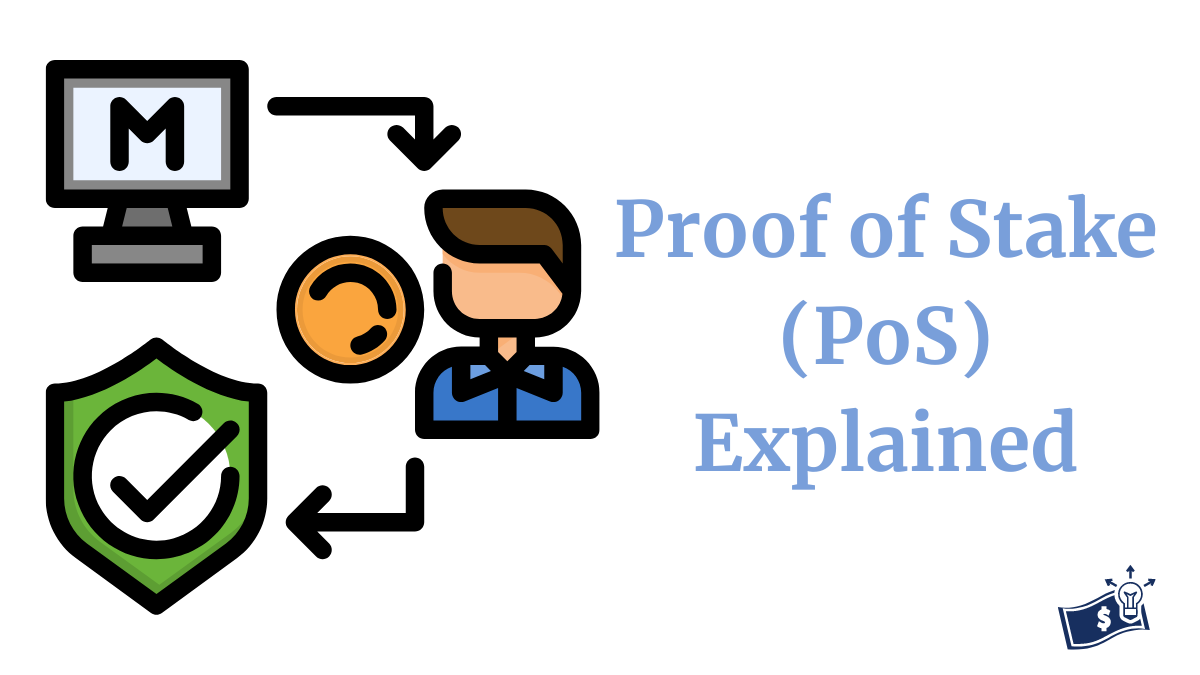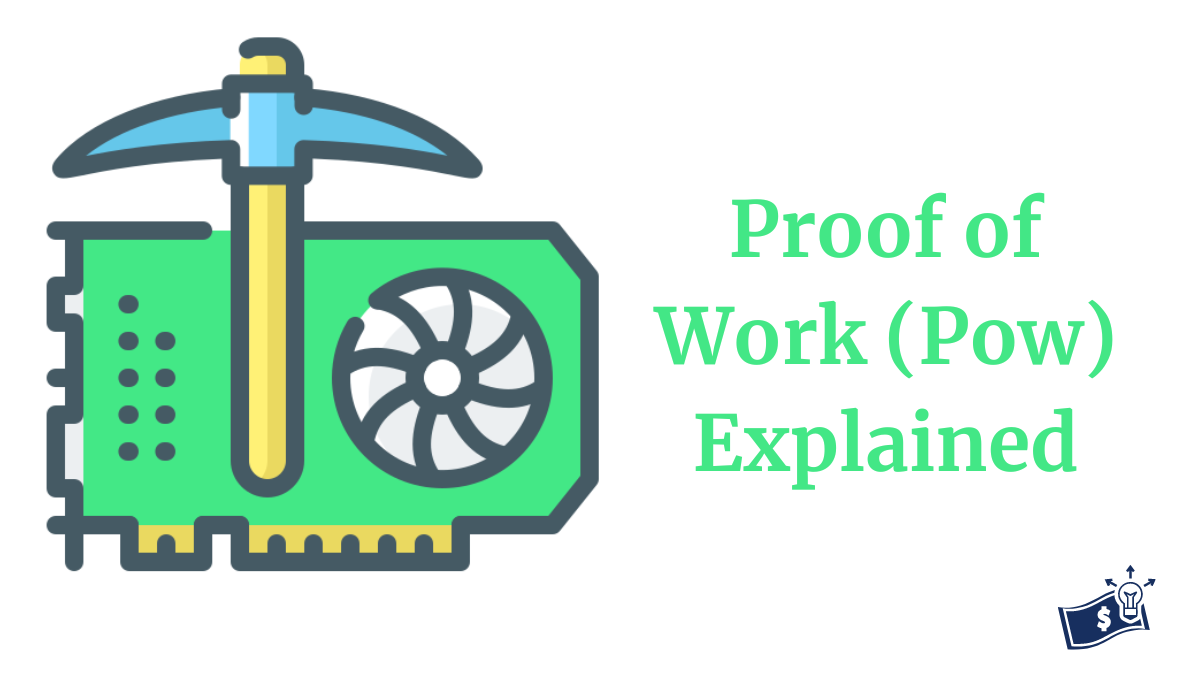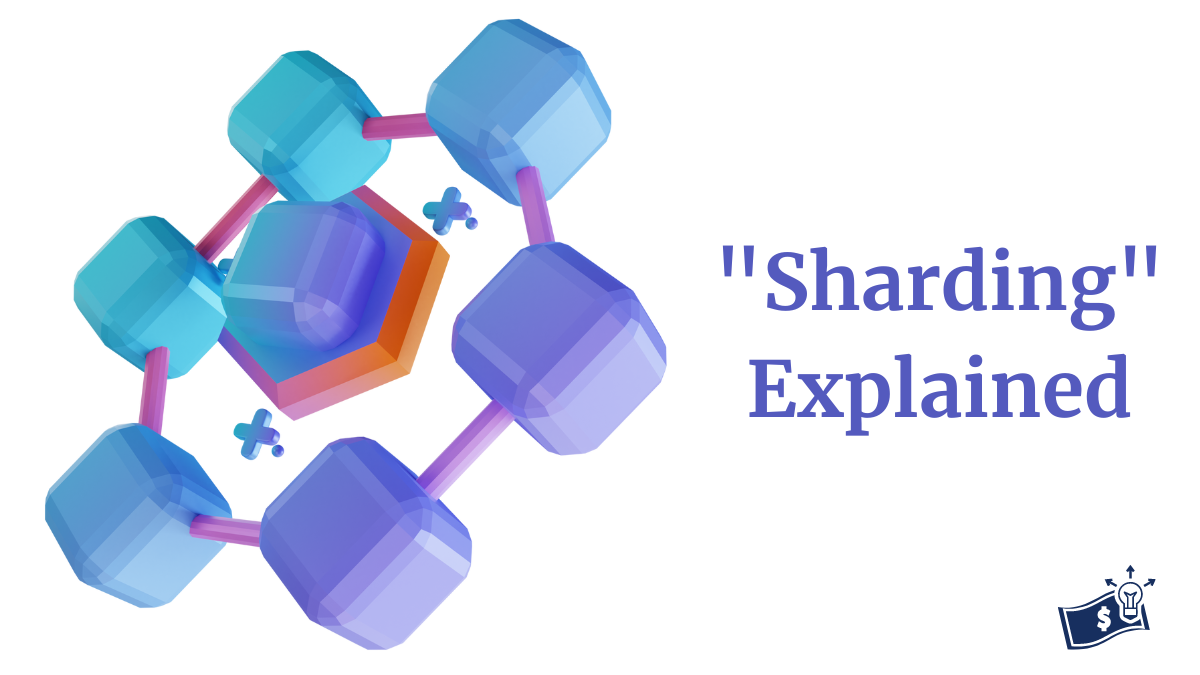The Rise of DAOs: A Comprehensive Guide to Decentralized Autonomous Organizations
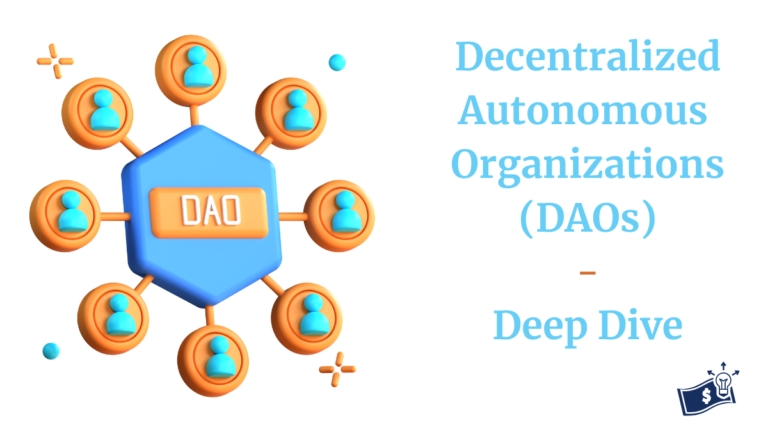
I. Introduction to DAOs
Decentralized Autonomous Organizations (DAOs) are a new type of organization that are run on blockchain technology. They are decentralized, transparent, and operate without intermediaries, making them an innovative and exciting development in the world of finance, governance, and community organization.
DAOs are essentially a group of individuals who come together to create a new type of organization that operates on a blockchain. DAOs are designed to be transparent, with all transactions recorded on the blockchain, and decentralized, with decision-making power distributed across the members of the organization.
A. Definition of DAOs
A DAO is a decentralized organization that operates according to rules encoded in smart contracts on a blockchain. These smart contracts are self-executing and self-enforcing, meaning that they automatically execute the rules and regulations of the organization without the need for a central authority. Members of the organization can vote on proposals and decisions, and the outcome of these votes is recorded on the blockchain.
B. Brief history of DAOs
The concept of DAOs emerged in 2013 with the launch of Mastercoin, which was one of the first ICOs (Initial Coin Offerings) to raise funds through cryptocurrency. The first DAO, called “The DAO,” was launched on the Ethereum blockchain in 2016, and it raised over $150 million in cryptocurrency from investors. However, the project was hacked soon after its launch, leading to a controversial hard fork of the Ethereum blockchain.
Since then, numerous DAOs have emerged in various industries, including finance, art, gaming, and social impact. These DAOs have different governance structures, decision-making mechanisms, and community dynamics.
C. Importance of DAOs in the cryptocurrency and blockchain ecosystem
DAOs represent a new way of organizing and working together that is decentralized and transparent. They offer a new model of governance that is more democratic and participatory than traditional organizations, and they provide opportunities for innovation and collaboration across borders and industries.
In the cryptocurrency and blockchain ecosystem, DAOs are particularly important because they enable new types of financial instruments and applications. For example, DAOs can be used to create decentralized investment funds, prediction markets, and other financial products that operate according to rules and regulations encoded in smart contracts. DAOs also have the potential to disrupt traditional finance and governance structures, as they offer a new way of organizing and managing resources that is more efficient and equitable.
II. Understanding DAOs
A. How DAOs Work
DAOs are run on blockchain technology, which means that all transactions and decisions are recorded on a distributed ledger that is transparent and immutable. DAOs are made up of a group of individuals who come together to create a new type of organization. Members of the DAO hold tokens that represent their ownership and voting rights within the organization.
Decisions within the DAO are made through a consensus of the members, who can vote on proposals using their tokens. Once a proposal is accepted, it is executed automatically through smart contracts that are written into the code of the DAO.
B. Key Features and Benefits of DAOs
The key features of DAOs include decentralization, transparency, and autonomy. Because DAOs are run on blockchain technology, they are decentralized, which means that decision-making power is distributed across the members of the organization. This reduces the need for intermediaries and creates a more democratic and transparent decision-making process.
DAOs are also transparent, with all transactions and decisions recorded on the blockchain for anyone to see. This creates trust and accountability within the organization and allows members to track the progress of proposals and decisions.
Finally, DAOs are autonomous, which means that they are able to operate without the need for centralized control. Once a proposal is accepted, it is executed automatically through smart contracts, which are programmed into the code of the DAO. This reduces the need for human intervention and creates a more efficient and cost-effective organization.
C. Types of DAOs
There are several types of DAOs, including:
Investment DAOs: These are DAOs that are used for investment purposes, such as managing investment funds or allocating capital to specific projects.
Social DAOs: These are DAOs that are used for social networking and community building, such as decentralized social media platforms.
Gaming DAOs: These are DAOs that are used for gaming and entertainment, such as decentralized gaming platforms.
Governance DAOs: These are DAOs that are used for governance and decision-making, such as decentralized voting platforms.
Hybrid DAOs: These are DAOs that combine different types of functionality, such as investment and social networking.
III. Governance Structures in DAOs
A. Decentralized Governance
One of the key features of DAOs is their decentralized governance structure. Unlike traditional organizations, where decision-making power is concentrated in a few individuals or a centralized authority, DAOs are designed to distribute decision-making power across their members.
Decisions within a DAO are made through a consensus of the members, who can vote on proposals using their tokens. This creates a more democratic decision-making process and reduces the risk of one individual or group exerting too much control over the organization.
B. Voting Mechanisms
The voting mechanisms within a DAO are critical to its governance structure. There are several types of voting mechanisms that can be used in a DAO, including:
Token-weighted voting: This is the most common type of voting mechanism in DAOs, where members vote on proposals using their tokens. The more tokens a member holds, the more voting power they have.
Quadratic voting: This is a more complex voting mechanism that gives more weight to minority opinions. In quadratic voting, members can vote on a proposal using a quadratic formula, which assigns more weight to votes that are spread out among more members.
Futarchy: This is a more experimental type of voting mechanism that uses prediction markets to determine the outcome of proposals. Members can bet on the success of a proposal, and the proposal is implemented if the prediction market indicates that it will be successful.
C. Decision-making Processes
The decision-making process within a DAO typically involves the following steps:
Proposal: A member of the DAO submits a proposal for consideration by the other members.
Discussion: Members of the DAO discuss the proposal and provide feedback.
Voting: Members of the DAO vote on the proposal using the chosen voting mechanism.
Execution: If the proposal is accepted, it is executed automatically through smart contracts.
D. Challenges and Risks
While DAOs offer many benefits, they also face several challenges and risks, particularly in the area of governance. Some of the challenges and risks associated with DAO governance include:
Sybil attacks: These are attacks where an individual creates multiple fake identities in order to gain more voting power within a DAO.
Voter apathy: This is a common problem in DAOs, where members fail to participate in the voting process, leading to low voter turnout and a lack of engagement.
Minority oppression: This is a risk where the majority of members in a DAO may vote to oppress the minority, leading to a lack of inclusivity and fairness.
IV. Types and Applications of DAOs
A. Finance DAOs
One of the most popular use cases for DAOs is in finance, where they are used for decentralized fundraising, investment management, and decentralized exchange protocols. Some of the most popular finance DAOs include MakerDAO, Compound, and Uniswap.
MakerDAO is a decentralized lending platform that enables users to borrow stablecoins against their cryptocurrency holdings. It is governed by the MakerDAO community, which uses MKR tokens to vote on changes to the protocol.
Compound is a decentralized lending and borrowing platform that allows users to earn interest on their cryptocurrency holdings. It is governed by a community of COMP token holders who vote on changes to the protocol.
Uniswap is a decentralized exchange that enables users to trade cryptocurrencies without the need for an intermediary. It is governed by a community of UNI token holders who vote on changes to the protocol.
B. Art and Culture DAOs
DAOs are also being used in the art and culture industry to create decentralized platforms for artists, musicians, and other creators. Some of the most popular art and culture DAOs include SuperRare and NFTX.
SuperRare is a marketplace for digital art that uses a DAO structure to enable artists to sell their work directly to collectors. It is governed by a community of RARE token holders who vote on changes to the platform.
NFTX is a platform that allows users to create and trade non-fungible tokens (NFTs) that represent ownership in various collections of NFTs. It is governed by a community of NFTX token holders who vote on changes to the platform.
C. Gaming DAOs
DAOs are also being used in the gaming industry to create decentralized platforms for gamers and game developers. Some of the most popular gaming DAOs include Axie Infinity and Decentraland.
Axie Infinity is a blockchain-based game that allows players to breed and battle digital creatures called Axies. It is governed by a community of AXS token holders who vote on changes to the game.
Decentraland is a virtual world where users can create, experience, and monetize content and applications. It is governed by a community of MANA token holders who vote on changes to the platform.
D. Governance DAOs
Finally, DAOs are being used in governance to create decentralized decision-making processes for political organizations and communities. Some of the most popular governance DAOs include Aragon and Gnosis.
Aragon is a platform for creating and managing decentralized organizations. It is governed by a community of ANT token holders who vote on changes to the protocol.
Gnosis is a platform for creating and predicting the outcome of decentralized markets. It is governed by a community of GNO token holders who vote on changes to the platform.
V. Pros and Cons of DAOs
A. Pros
Decentralization: one of the main advantages of DAOs is their decentralized nature. Traditional organizations are often centralized and hierarchical, with decision-making power concentrated at the top. In contrast, DAOs distribute decision-making power among all members of the community, creating a more democratic and inclusive environment.
Transparency: DAOs are also highly transparent, with all transactions and decision-making processes recorded on a public blockchain. This transparency promotes accountability and reduces the risk of fraud or corruption.
Efficiency: DAOs can be highly efficient, with decision-making processes streamlined and automated. Smart contracts can be used to automate tasks, reducing the need for manual intervention.
Community Engagement: DAOs foster a strong sense of community engagement, with all members having a stake in the organization’s success. This encourages participation and collaboration, leading to a more engaged and motivated community.
Lower Costs: DAOs can also be more cost-effective than traditional organizations, as they eliminate the need for intermediaries and reduce administrative costs.
B. Cons
Lack of Legal Clarity: The legal status of DAOs is still unclear in many jurisdictions, which can create regulatory challenges and uncertainty.
Technical Complexity: DAOs can be technically complex, requiring significant expertise in blockchain technology and smart contract development. This can create a barrier to entry for some potential members.
Risk of Governance Failure: DAOs are only as effective as their governance structure, and there is a risk that governance failure can lead to inefficiencies or even the collapse of the organization.
Lack of Flexibility: DAOs are based on a set of rules encoded in smart contracts, which can limit their flexibility in responding to changing circumstances or needs.
Cybersecurity Risks: As with all blockchain-based systems, DAOs are vulnerable to cybersecurity risks such as hacking or theft.
VI. Real-world Examples of DAOs
MakerDAO
MakerDAO is one of the most well-known DAOs, created in 2014 with the aim of building a decentralized stablecoin ecosystem. The DAO is governed by MKR token holders, who participate in decision-making through a continuous approval voting system. The primary function of MakerDAO is to issue and manage the DAI stablecoin, which is pegged to the US dollar.
Aragon
Aragon is another prominent DAO, founded in 2016 with the aim of providing a platform for the creation and management of decentralized organizations. The DAO is governed by ANT token holders, who participate in decision-making through a liquid democracy system. Aragon provides a suite of tools for creating and managing DAOs, including a token issuance platform, voting system, and dispute resolution mechanism.
MolochDAO
MolochDAO is a unique DAO created in 2019 with the aim of funding Ethereum infrastructure projects. The DAO is governed by a small group of core members, who are responsible for making investment decisions. MolochDAO uses a funding mechanism known as “guilds,” where groups of individuals can pool their funds and propose projects to be funded by the DAO.
DXdao
DXdao is a DAO created in 2019 with the aim of building decentralized financial (DeFi) products and services. The DAO is governed by DXD token holders, who participate in decision-making through a continuous approval voting system. DXdao provides a range of DeFi products and services, including decentralized exchanges, prediction markets, and lending platforms.
GnosisDAO
GnosisDAO is a DAO created in 2020 with the aim of building decentralized prediction markets. The DAO is governed by GNO token holders, who participate in decision-making through a quadratic voting system. GnosisDAO provides a prediction market platform that allows users to bet on the outcome of events, ranging from sports games to political elections.
VII. Challenges and Limitations of DAOs
Regulatory Uncertainty
One of the main challenges facing DAOs is regulatory uncertainty. While some countries have been proactive in creating legal frameworks for cryptocurrencies and blockchain technology, many others have not. This creates uncertainty for DAOs and their members, who may be subject to legal or regulatory action if their activities are deemed to be in violation of existing laws.
Technical Limitations
While DAOs are designed to be decentralized, they still require some level of governance to function effectively. This can create challenges when it comes to decision-making, as different members may have competing interests or opinions. Additionally, DAOs may face challenges in attracting and retaining members who are committed to the organization’s goals and values.
Security Risks
DAOs are vulnerable to security risks, just like any other digital asset. For example, DAOs may be subject to hacks or other cyber attacks, which can result in the loss of funds or other assets. Additionally, DAOs may be susceptible to governance attacks, where malicious actors attempt to manipulate the decision-making process to further their own interests.
Lack of Awareness
Finally, DAOs are still relatively new, and many people are not yet aware of their potential or how they work. This lack of awareness can make it difficult for DAOs to attract members and build communities, limiting their potential for growth and impact.
VIII. Future of DAOs
DAOs have gained significant momentum in recent years, with new DAOs being created and existing ones expanding their reach and impact. In this chapter, we will explore the future of DAOs and their potential impact on society.
Increased Adoption: As more people become aware of DAOs and their potential, we can expect to see increased adoption and growth. This could include the creation of new DAOs in a wide range of sectors, from finance to governance to social impact. Additionally, existing DAOs may expand their reach and impact, attracting new members and increasing their influence.
Improved Governance Structures: As DAOs continue to evolve, we can expect to see new and improved governance structures emerge. This may include the development of new voting systems or decision-making processes, as well as the creation of new tools and technologies that make it easier for DAOs to operate and succeed.
Impact on Traditional Organizations: As DAOs become more prevalent and successful, they may begin to impact traditional organizations and their structures. This could include the adoption of decentralized decision-making processes within existing organizations, or the creation of hybrid models that combine traditional and decentralized governance structures.
Greater Social Impact: One of the most exciting possibilities for DAOs is their potential to create social impact. By enabling decentralized decision-making and community-driven initiatives, DAOs can empower individuals and groups to work towards common goals and make a positive impact on society. This could include initiatives related to sustainability, social justice, and community development, among others.
Integration with Emerging Technologies: Finally, as DAOs continue to evolve, we can expect to see increased integration with emerging technologies such as artificial intelligence and the internet of things. This could enable new possibilities for automation and decision-making, as well as new ways for DAOs to create value and impact.
Overall, the future of DAOs looks bright, with significant potential for growth, impact, and innovation. As the DAO ecosystem continues to evolve and mature, we can expect to see new and exciting developments that push the boundaries of decentralized governance and decision-making.
IX. Conclusions and Final Thoughts
Decentralized autonomous organizations (DAOs) represent an exciting new frontier in governance and decision-making. By leveraging blockchain technology, DAOs enable decentralized decision-making and community-driven initiatives, empowering individuals and groups to work towards common goals and make a positive impact on society.
Throughout this book, we have explored the history, mechanics, benefits, challenges, and future of DAOs. We have seen that while DAOs hold great potential for decentralized governance and decision-making, they also face several challenges and limitations that must be addressed.
One of the most promising aspects of DAOs is their potential to create social impact. By enabling community-driven initiatives, DAOs can empower individuals and groups to work towards common goals and make a positive impact on society. This could include initiatives related to sustainability, social justice, and community development, among others.
As DAOs continue to evolve and mature, we can expect to see new and exciting developments that push the boundaries of decentralized governance and decision-making. From improved governance structures to increased adoption and impact, the future of DAOs looks bright.
In conclusion, DAOs represent a powerful tool for decentralized governance and decision-making. While they face challenges and limitations, the potential for social impact and innovation is significant. As we continue to explore the possibilities of DAOs, we have the opportunity to create a more equitable, sustainable, and community-driven future.
Frequently Asked Questions (FAQs)
DAOs provide a range of benefits, including decentralized decision-making, community-driven initiatives, transparency, and immutability. They also enable individuals and groups to work towards common goals and make a positive impact on society, with a focus on social impact, sustainability, and community development.
DAOs face several challenges, including the need for active participation from members, the potential for low voter turnout or low participation rates, the potential for collusion or manipulation, and the challenge of balancing the needs of individual members with the needs of the community as a whole. Additionally, DAOs may face legal and regulatory challenges, as they exist in a legal gray area in many jurisdictions.
Anyone can technically join a DAO, as long as they have the required tokens or assets to become a member. However, some DAOs may have specific membership requirements or restrictions based on geographic location or other factors.
Creating a DAO typically involves defining the rules and procedures for decision-making and governance, developing smart contracts to enforce these rules, and attracting members to participate in the DAO. There are also several platforms and tools available for creating and managing DAOs, such as DAOstack and Aragon.
Smart contracts are the backbone of a DAO, as they define the rules and procedures for decision-making and governance. They ensure that decisions are transparent and immutable, and that members are held accountable for their actions. Smart contracts also automate many of the processes involved in governance, such as vote counting and fund allocation.
The legal status of DAOs is still uncertain in many jurisdictions, as they exist in a legal gray area. Some countries, such as Switzerland and Malta, have taken steps to provide legal frameworks for DAOs, while others have yet to address the issue. It is important for DAO creators and members to seek legal advice to ensure that they are operating within the bounds of the law.
DAOs have the potential to disrupt traditional organizations by providing a more decentralized and community-driven alternative. However, they are not without their limitations and challenges, and it remains to be seen whether they will replace traditional organizations entirely. It is more likely that DAOs will coexist alongside traditional organizations, providing a new model for governance and decision-making.
